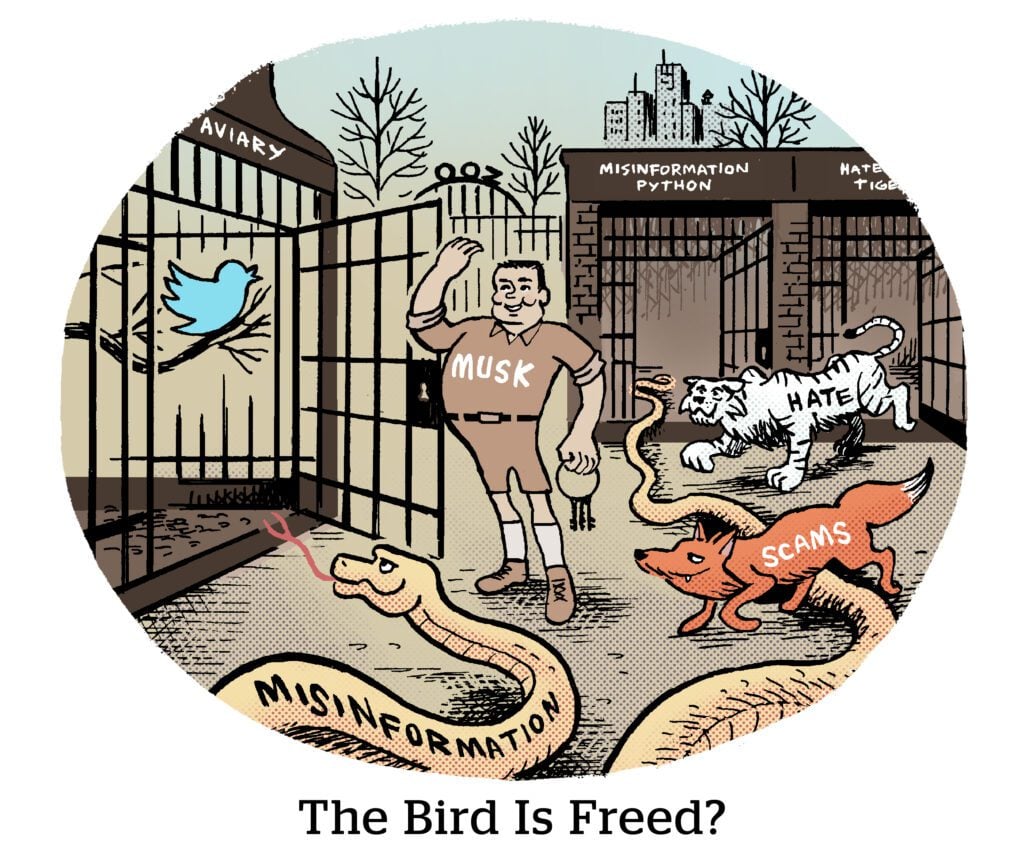Here’s today’s AdExchanger.com news round-up… Want it by email? Sign up here.
What Could Possible Go Wrong?
Elon Musk was a splashy late get for the POSSIBLE marketing conference in Miami next week.
He’s a major draw, but he comes with risks, as some brand leaders are concerned about Musk’s participation, Semafor reports.
In previous industry sessions, Musk has not acquitted himself. A call last November with dozens of CMOs went sideways after Musk refused to address their concerns, leaving big advertisers less than reassured.
A month later, Musk joined reporters and ad pros in an impromptu Twitter Spaces chat regarding the suspension of reporters and accounts that were on the wrong side of his personal grievances. He was mocked in the chat and responded by pulling the plug on the entire Twitter Spaces product.
And, as Semafor notes, NBCU ad chief Linda Yaccarino, who’ll interview Musk on stage, is in a difficult spot. It would be a tough session for the stoutest journalist, and ad sales execs are not accustomed to hard-hitting interviews with client partners.
Greg Stuart, CEO of MMA, the conference organizer, says the overall response has been positive and Musk’s involvement is important for the industry. “We need to hear what he’s doing.”
Fool’s Gold
The ATT recession. The macroeconomic downturn. Widespread layoffs. There are numerous reasons for startup setbacks nowadays.
The SSP Ezoic is dealing with each of those and a problem all its own: In 2022, an employee stole $9 million in an ill-advised attempt to purchase 151 kilos of gold bars, Insider reports.
The audacious scheme blew a hole in Ezoic’s finances. The employee siphoned off a month’s revenue from Google, Ezoic’s largest buy-side source, by changing the bank information to his own personal Chase account.
A source told Insider that redirecting the payment would have been incredibly easy to do, but most ad tech workers aren’t dumb enough to try it “because it’s so obviously traceable and reversible.” The now former employee was nabbed by the FBI before he got a hold of the gold.
Ezoic has since taken steps to secure its AdSense account from employee meddling.
Words Matter
Branded searches that also include valuable generic keywords don’t improve a brand’s Google ranking for that standalone keyword, Search Engine Roundtable reports, based on comments by Google search exec John Mueller.
For example, Sina Afkham, an SEO consultant, asked whether more searches for “buy hat Amazon” improve Amazon’s ranking for “buy hat.”
“Why should it?” Mueller responded.
There is an intuitive rationale, to be fair. But it creates a vector for spam if “brand + keyword” searches improve the organic ranking for that keyword. Google uses similar preventative blocks to stop SEO spammers from gaming their way into Google Suggest autocomplete terms, according to Roundtable.
Interestingly, the article cites the kind of technical back-and-forth usually found on Twitter, only this time it was on Mastodon.
In related news, Twitter vindictively removed sharing and likes for tweets and threads with Substack links on Friday, a day after Substack announced a Twitter-like product called Notes.
So much for Substack authors, who tend to be Twitter power users but are tacitly told to eff off.
But Wait, There’s More!
How HBO Max is bringing ads to ‘Succession’ and other HBO originals. [Ad Age]
Advertisers are still waiting for a glimpse of the CTV promise land. [Digiday]
Ad spend in the US will grow more than initially expected this year, per S&P. [Marketing Brew]
TikTok is dead (maybe). Long live TikTok dance. [NYT]
Paramount may sell a majority stake in Noggin, an online learning and streaming service for preschool children. [WSJ]














